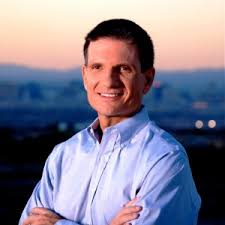February 24th, 2011 by Harriet Hall, M.D. in Health Tips, Research
1 Comment »

I was surprised to get this e-mail from a reader:
Surely, Dr. Hall, the public mania for nutritional supplements is baseless. All the alleged nutrients in supplements are contained in the food we eat. And what governmental agency has oversight responsibility regarding the production of these so-call nutritional supplements? Even if one believes that such pills have value, how can the consumer be assured that the product actually contains what the label signifies? I have yet to find a comment on this subject on your otherwise informative website.
My co-bloggers and I have addressed these issues repeatedly.Peter Lipson covered DSHEA (The Diet Supplement Health and Education Act) nicely. It’s all been said before, but perhaps it needs to be said again — and maybe by writing this post I can make it easier for new readers to find the information.
Food, Medicine, or Something In Between?
The FDA regulates foods and has been instrumental in improving the safety of our food supply. It regulates prescription and over-the-counter medications, requiring evidence of effectiveness and safety before marketing. Surveys have shown that most people falsely assume these protections extend to everything on the shelves including diet supplements, but they don’t.
Under the 1994 Diet Supplement Health and Education Act (DSHEA), a variety of products such as vitamins, minerals, herbs and botanicals, amino acids, enzymes, organ tissues, and hormones can evade the usual controls if they are sold as diet supplements. Under the DSHEA, the manufacturer doesn’t have to prove to the FDA that a product is safe and effective; it is up to the FDA to prove that it isn’t safe, and until recently there was no systematic method of reporting adverse effects (required reporting is still limited to serious effects like death).
So far the FDA has only managed to ban one substance, ephedra, and it took the death of a prominent sports figure and considerable skirmishing with the courts to accomplish that. Independent lab tests of diet supplements have found a high rate of contamination (with things like heavy metals and prescription drugs) and dosages wildly varying from the label. A striking example was Gary Null’s recent poisoning with vitamin D from one of his own products which contained 1,000 times the intended amount.
The FDA has issued rules on good manufacturing practices, but standardization is not required and it remains to be seen whether the new rules will effectively improve product quality. Read more »
*This blog post was originally published at Science-Based Medicine*
February 23rd, 2011 by Davis Liu, M.D. in Health Policy, Opinion
2 Comments »

With the creation of consumer-driven health plans and health insurance policies with high deductibles linked to a savings option, more financial responsibility shouldered by patients and employees and less by employers was completely inevitable. The American public likes to have everything, whether consumer electronics or other services, as cheap as possible. With escalating healthcare expenses rising far more rapidly than wages or inflation, it’s not surprising employers needed a way to manage this increasingly-costly business expense.
In the past, companies faced a similar dilemma. It wasn’t about medical costs, but managing increasingly expensive retirement and pension plan obligations. Years ago, companies moved from these defined benefit plans to defined contribution plans like 401(k)s. After all, much like healthcare, the reasoning by many was that employees were best able to manage retirement planning because they would have far more financial incentive, responsibility, and self-motivation to make the right choices to ensure a successful outcome.
How did that assumption turn out anyway? Disastrous, according to a recent Wall Street Journal article entitled “Retiring Boomers Find 401(k) Plans Fall Short.” An excerpt:
The median household headed by a person aged 60 to 62 with a 401(k) account has less than one-quarter of what is needed in that account to maintain its standard of living in retirement, according to data compiled by the Federal Reserve and analyzed by the Center for Retirement Research at Boston College for The Wall Street Journal. Even counting Social Security and any pensions or other savings, most 401(k) participants appear to have insufficient savings. Data from other sources also show big gaps between savings and what people need, and the financial crisis has made things worse.
In others words, a lot of people don’t have enough money to retire. The options they have are simply “postponing retirement, moving to cheaper housing, buying less-expensive food, cutting back on travel, taking bigger risks with their investments, and making other sacrifices they never imagined…In general, people facing problems today got too little advice, or bad advice.” Read more »
*This blog post was originally published at Saving Money and Surviving the Healthcare Crisis*
February 23rd, 2011 by GruntDoc in Health Policy, News
No Comments »

 I was unaware that Dr. Joe Heck of Nevada is the first emergency physician to be elected to Congress. Good for him! From the American College of Emergency Physicians (ACEP):
I was unaware that Dr. Joe Heck of Nevada is the first emergency physician to be elected to Congress. Good for him! From the American College of Emergency Physicians (ACEP):
In one of the closest congressional races of 2010, Republican challenger and ACEP member Dr. Joe Heck upset Rep. Dina Titus in Nevada’s third Congressional District. Dr. Heck is the first ACEP member and emergency physician to be elected to Congress.
I suppose that leaves me to be the first for the Senate…
*This blog post was originally published at GruntDoc*
February 23rd, 2011 by KevinMD in Health Policy, Opinion
No Comments »

There are plenty of reasons why medical students aren’t choosing primary care as careers. Lack of role models. Perception of professional dissatisfaction. High burnout rate among generalist doctors. Long, uncontrollable hours.
But what about salary? Until now, the wage disparity between primary care doctors and specialists has only been an assumed reason; the evidence was largely circumstantial. After all, the average medical school debt exceeds $160,000, so why not go into a specialty that pays several times more, with better hours?
Thanks to Robert Centor, there’s a study published in Medscape that shows how money affects career choice among medical students. Here’s what they found:
Sixty-six percent of students did not apply for a primary care residency. Of these, 30 percent would have applied for primary care if they had been given a median bonus of $27,500 before and after residency. Forty-one percent of students would have considered applying for primary care for a median military annual salary after residency of $175,000.
And in conclusion:
U.S. medical students, particularly those considering primary care but selecting controllable lifestyle specialties, are more likely to consider applying for a primary care specialty if provided a financial incentive.
Money matters. There should be no shame for new doctors to admit that. After all, they’re human too, and respond to financial incentives just like anyone else. And when most medical students graduate with mortgage-sized school loans, salary should be a factor when considering a career. Read more »
*This blog post was originally published at KevinMD.com*
February 23rd, 2011 by John Mandrola, M.D. in Better Health Network, Opinion
1 Comment »

 I am a doctor. Go ahead, call me what you may. Group me into a neatly, prejudged category: “All you doctors.” Just don’t label me a sponge.
I am a doctor. Go ahead, call me what you may. Group me into a neatly, prejudged category: “All you doctors.” Just don’t label me a sponge.
That’s right. Recently in the Wall Street Journal, Mr. Andy Kessler, famous author and former hedge fund manager smart enough to turn $100 million into $1 billion, grouped doctors into a sub-category of the service economy which he labeled as “sponges.” We could have done worse: His other categories included “sloppers” (DMV workers), “slimers” (financial planners), and “thieves” (cable companies).
It seems that doctors — along with cosmetologists, lawyers, and real estate brokers — offend him because of the tests and licenses that we deem necessary:
Sponges are those who earned their jobs by passing a test meant to limit supply. According to this newspaper, 23% of U.S. workers now need a state license. The Series 7 exam is required for stock brokers. Cosmetologists, real estate brokers, doctors and lawyers all need government certification. All this does is legally bar others from doing the same job, so existing workers can charge more and sponge off the rest of us.
His essay goes on to argue the tired notion that technology endangers jobs in the service sector — the toll booth operator argument, again. He likes the creators of stuff: Apple and Google. (Duh.) But in my mind, doctoring is about creating something: We create better and longer lives for our patients. Ask the patient cured of cancer how happy they are that some doctor created his or her treatment plan. Read more »
*This blog post was originally published at Dr John M*

















